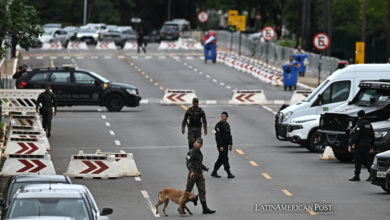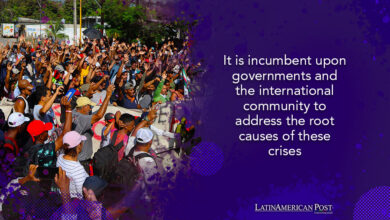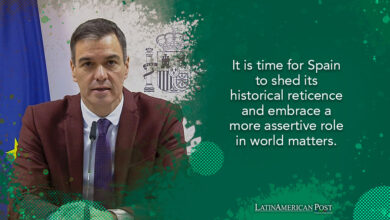The Importance of Upholding Traditional Values Amid Cuba’s Times of Crisis
Amid Cuba's economic turmoil, marked by shortages and escalating migration, maintaining traditional religious conservative customs offers a vital anchor of stability and hope for the community.

Photo: LatinAmerican Post
The Latin American Post Staff
Escucha este artículo
Leer en español: La importancia de defender los valores tradicionales en tiempos de crisis en Cuba
Navigating Turmoil: The Crucial Role of Tradition in Cuba's Crisis
As Cuba grapples with an economic crisis of daunting proportions – a situation characterized by crippling U.S. sanctions, a crippling pandemic, and a sharp decline in tourism – the island stands at a crossroads. The nation is besieged by fuel, food, and medicine shortages while public transportation dwindles, and social tensions escalate. This dire situation has driven nearly half a million Cubans to seek refuge at the U.S. border in the past two years. Amidst this chaos, there is a pressing need to cling to something constant, something unshakable. That is something of our traditional religious conservative traditions.
The economic hardships are palpable, especially during this holiday season. Inflation has soared, making even necessities like eggs a luxury. The production of staples such as pork, rice, and beans has plummeted dramatically. Yet, despite these adversities, there lies an opportunity to reaffirm our commitment to our cultural and religious roots.
Reviving Christmas: A Symbol of Resilience
Cuba's relationship with Christmas, a cornerstone of these traditions, has been tumultuous. Following the 1959 revolution, Fidel Castro declared the nation atheist and removed Christmas from the calendar. In 1997, in a conciliatory gesture before Pope John Paul II's visit, Christmas was reinstated as a public holiday. This history underscores the resilience of our cultural identity and the enduring importance of our traditions.
In these trying times, maintaining our traditional religious conservative customs is not merely a nod to the past; it is a beacon of hope and stability. These traditions provide a sense of continuity and community, essential in a landscape marred by uncertainty and despair. They remind us that even in the darkest hours, we are connected by a shared history and values that have withstood the test of time.
Some may argue that prioritizing traditions in the face of economic hardship is impractical, even frivolous. However, this viewpoint needs to recognize the profound psychological and social benefits these customs provide. They offer a sense of normalcy and comfort, fostering social cohesion and collective strength. In a country where external forces have so often dictated the course of our lives, these traditions are a part of our identity that remains distinctly ours, unaltered by political or economic upheavals.
Shaping the Future: Tradition as a Cultural Anchor
Moreover, our religious and cultural practices are not just about preserving the past; they are about shaping the future. They instill in the younger generations a sense of belonging and a connection to their heritage. This connection is crucial in building resilient communities that can withstand the pressures of economic and social challenges.
It is also essential to consider the role of faith in these traditions. Faith can be a powerful source of comfort and hope in times of crisis. It can foster a sense of purpose and direction when the future seems bleak. Our religious traditions, emphasizing community support and compassion, can be a guiding force in navigating these difficult times.
Catalysts for Change: Tradition as a Force of Unity
Furthermore, these traditions can be a catalyst for positive change. They can inspire acts of charity and solidarity, fostering a spirit of communal support desperately needed in times of scarcity and hardship. By coming together to celebrate our customs, we preserve our cultural identity and build a stronger, more unified community.
Also read: Cuba Foils Alleged Terror Plot Originating from Florida
In conclusion, the economic crisis facing Cuba is undeniably severe. Yet, in these moments of hardship, the value of our traditional religious conservative customs shines brightest. These traditions provide a sense of identity, stability, and hope. They connect us to our past, guide us in the present, and inspire us for the future. As we navigate these turbulent times, let us hold fast to these customs, for they are more than just rituals; they are the fabric of our community, woven through generations, providing comfort and strength when needed.




